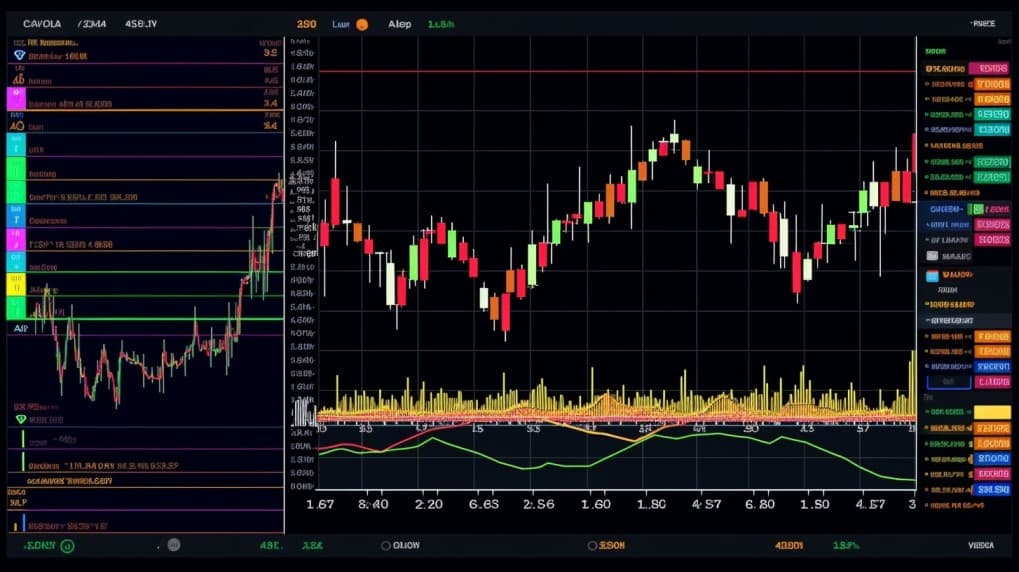
DBC Vs DJP: Investment Strategy
Exchange-Traded Funds (ETFs) have transformed the investment landscape, providing investors with convenient access to a diverse range of sectors and asset classes. In this article, we will conduct an in-depth comparison between two prominent ETFs: DBC (PowerShares DB Commodity Index Tracking Fund) and DJP (iPath Bloomberg Commodity Index Total Return ETN). We'll explore various facets, including ETF tickers, full names, issuers, sectors, top holdings, capitalization, investment strategy, tracking methods, and exposure.
DBC Vs DJP: Overview
DBC and DJP are two distinct ETFs that focus on commodities but employ different approaches. DBC is designed to track the performance of a broad commodity index, offering exposure to various commodities such as energy, agriculture, and metals. DJP, on the other hand, is an Exchange-Traded Note (ETN) linked to the Bloomberg Commodity Index, providing exposure to a diverse basket of commodities. The differing investment methodologies between DBC and DJP result in unique risk-return profiles that investors should consider.
DBC Vs DJP: Sectors and Top Holdings
When examining the sectors and top holdings of these ETFs, interesting differences emerge. DBC's holdings encompass a wide array of commodities, including crude oil, natural gas, corn, and gold. On the other hand, DJP's holdings might include energy commodities like crude oil and natural gas, agricultural commodities such as corn and soybeans, and metals like gold and silver. Analyzing the composition of these ETFs' portfolios can provide insights into the underlying commodities driving their performance.
 DBC overlap DBC VS DJP
DBC overlap DBC VS DJP
DBC Vs DJP: Capitalization and Investment Strategy
Capitalization and investment strategy play pivotal roles in ETF performance. DBC boasts a substantial asset under management (AUM), reflecting its popularity among investors seeking broad commodity exposure. DBC aims to reflect changes in the Deutsche Bank Liquid Commodity Index, which tracks futures contracts on various commodities. In contrast, DJP employs an ETN structure and seeks to replicate the Bloomberg Commodity Index's returns. Understanding the differences in capitalization and investment strategy helps investors gauge potential risks and rewards.
DBC Vs DJP: Tracking Methods and Exposure
DBC and DJP employ distinct tracking methods and offer varying levels of exposure. DBC's tracking methodology involves holding futures contracts on commodities, which allows it to closely mimic the index's performance. DJP, as an ETN, aims to replicate the total return of the Bloomberg Commodity Index through a debt instrument issued by the issuer. Investors interested in commodity exposure must assess whether they prefer direct commodity futures exposure (DBC) or exposure through an ETN (DJP).
Conclusion
DBC and DJP provide investors with different avenues to access the commodities market, each with its unique characteristics and considerations. For those seeking to delve deeper into the intricacies of these ETFs, such as holdings, correlations, overlaps, and other insights, the ETF Insider tool is invaluable. With its user-friendly app, it offers comprehensive details about these financial instruments and more.
Disclaimer: This article is intended for informational purposes only and does not offer any investment advisory services.
Sources:
"PowerShares DB Commodity Index Tracking Fund (DBC)." Invesco.
"iPath Bloomberg Commodity Index Total Return ETN (DJP)." iPath by Barclays.
DJP quote and analysis
Discover the top holdings, correlations, and overlaps of ETFs using our visualization tool.
Our app allows you to build and track your portfolio.
To learn more about the DJP iPath Bloomberg Commodity Index Total Return ETN, access our dedicated page now.
FAQ
Why is DBC better than DJP?
DBC may be considered better than DJP for some investors due to its specific focus, offering diversification.
Does DJP beat DBC?
DJP's performance relative to DBC will vary over time, depending on market conditions.
Should I invest in DBC or DJP?
The choice between DBC and DJP should align with your investment goals, risk tolerance, and desired exposure.
Are DBC and DJP good investments?
Both DBC and DJP can be suitable investments depending on individual investment strategies, goals, and risk profiles.
What is the correlation between DBC and DJP?
The correlation between DBC and DJP can vary over time, reflecting differences in performance.